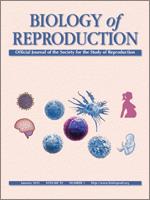The maturation of spermatozoa throughout the epididymal environment occurs in the complete absence of nuclear protein biosynthesis. As such, these cells rely heavily on posttranslational modifications of existing proteins in order to obtain the potential for fertilization. We have used an OxiCat approach to label both free and oxidized cysteine residues in rat sperm proteins and compared the ratio of reduced:oxidized peptides as these cells undergo epididymal transit. In all, 20 peptides, corresponding to 15 proteins, underwent a change in their redox status. Included in this list were A-kinase anchoring protein 4 and fatty acid-binding protein 9. Both of these proteins undergo intradisulfide bonding, leading to reduced solubility and, in the case of the latter, is likely to cause a loss of protein function. Interestingly, two glycolytic enzymes, hexokinase-1 and lactate dehydrogenase, also display increased cysteine oxidation during epididymal transit, which may be involved in the regulation of the enzyme activities.
How to translate text using browser tools
19 November 2014
Analysis of Protein Thiol Changes Occurring During Rat Sperm Epididymal Maturation
Mark A. Baker,
Anita Weinberg,
Louise Hetherington,
Ana Izabel S.B. Villaverde,
Tony Velkov
ACCESS THE FULL ARTICLE

Biology of Reproduction
Vol. 92 • No. 1
January 2015
Vol. 92 • No. 1
January 2015
cysteine oxidation
epididymis
OxiCat
proteomics
sperm maturation




